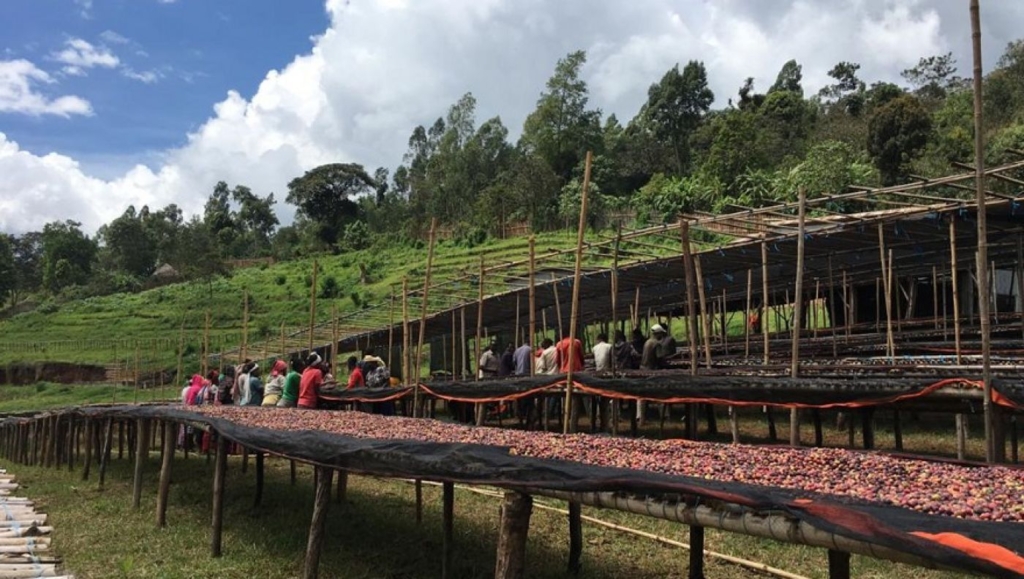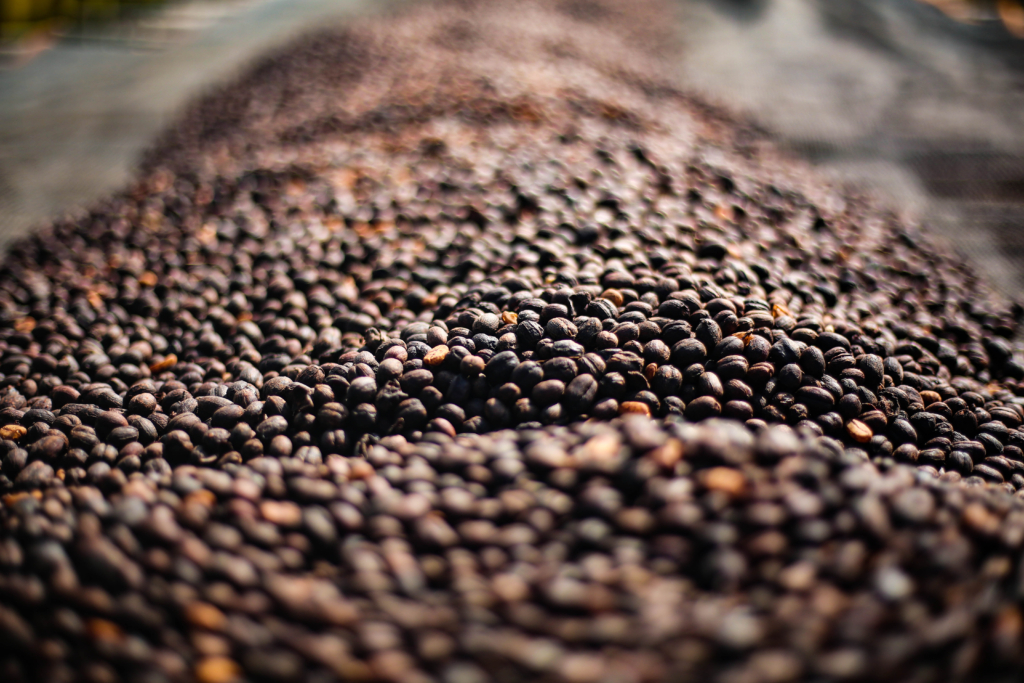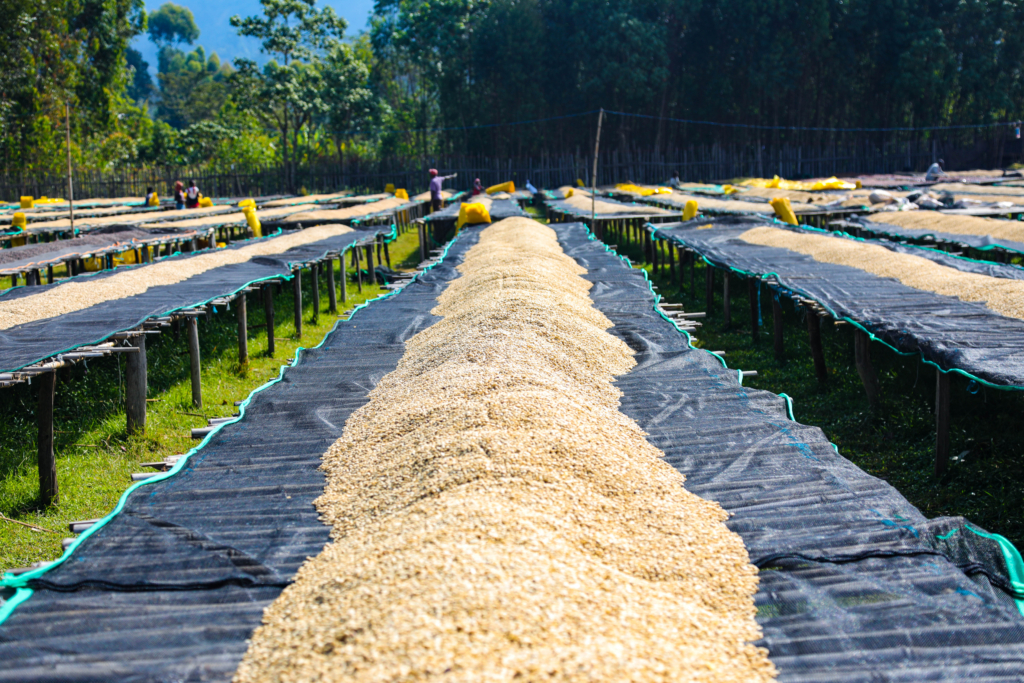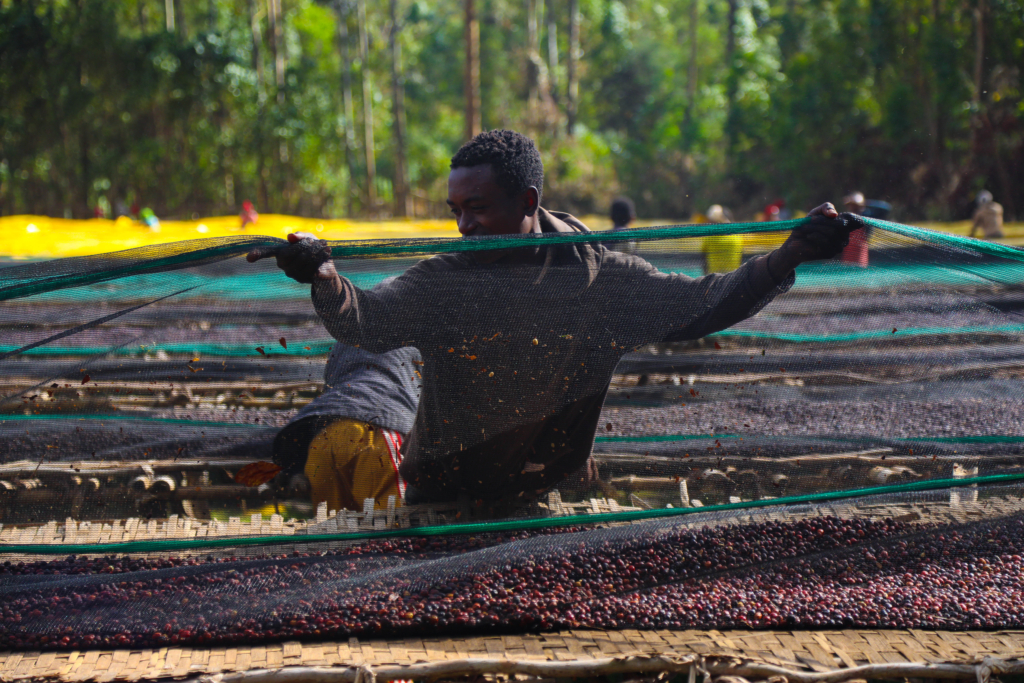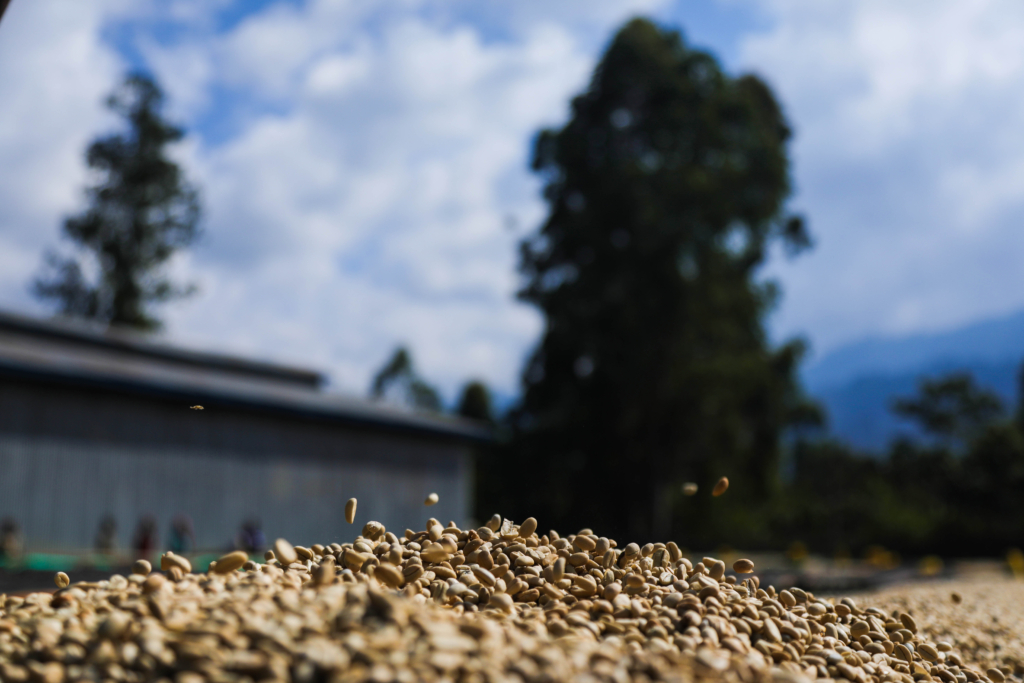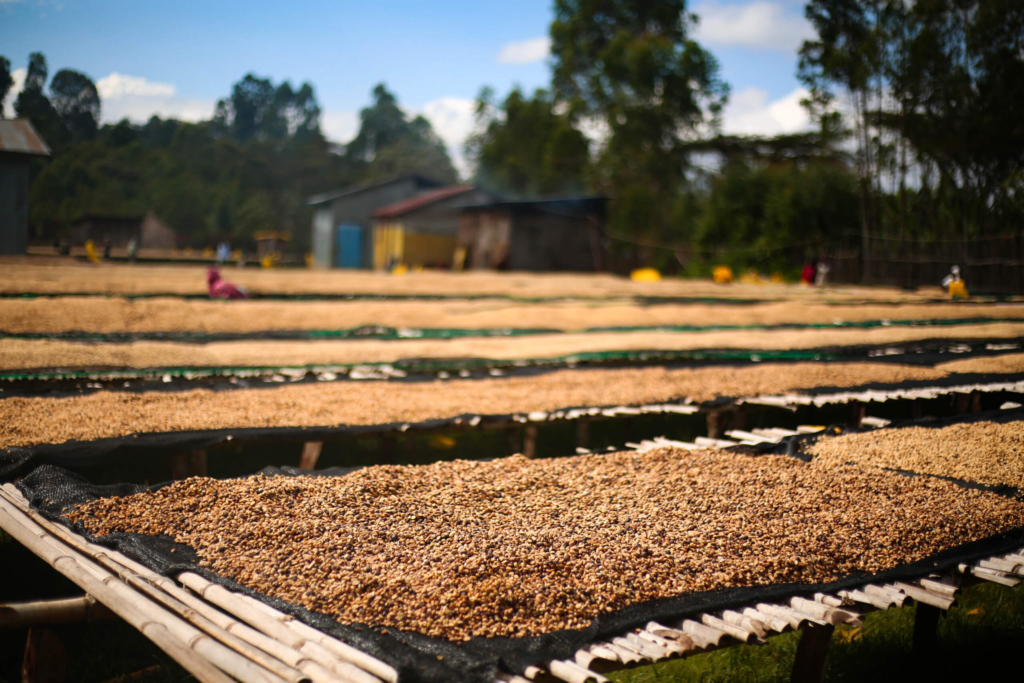Ethiopia, ODACO : London Fields Roastery first Rare Micro-lot.
Ethiopian people have a relationship to coffee that is wholly unique and this also transpires into their farming and processing methods. Ethiopian coffee is usually produced in a sustainable way, with the majority grown as garden coffee. This means that it is planted by farmers close to their houses and is often intercropped with other plants. Many African farmers are subsistence farmers, meaning they survive off their own land and grow food for their own consumption, with coffee being the only crop used for actual cash income. It’s also common for producers to grow coffee in a semi-forest system, in which natural forest is modified by slashing weeds and bushes for shade regulation before coffee seedlings are introduced. Only an estimated 5% of coffee production is on a dedicated plantation in Ethiopia and around 90% is organically grown within surrounding wild forest regions.
Our new and exciting Ultra Limited Edition Odaco coffee hails from the Shantawene community in the Bensa region of Ethiopia, where Daye Bensa farmers cultivate limited production micro lots, this approach helps them to focus on the quality of the beans. The Odaco micro lot comes from Asefa Dukamo Korma and as soon as his coffee is received it gets sorted by floating and picking out the ripe cherries. It is then dried on African beds for 13-15 days; one person is assigned per each individual bed to rotate the cherries every 15 minutes to ensure uniformity of drying. At Daye Bensa traceability is extremely important for their micro lots. The record-keeping book is carefully handled and separation is key to guarantee the highest level of quality. When the cherries are received they get separated by village, the coffee is then kept separate throughout drying, processing, and storage, with labels stating the delivery dates, farm name, lot number, and more details related to the particular lot.
This coffee is grown at jaw-dropping high altitudes of over 2000 metres above sea level, this allows for the coffee plant and seeds to slowly develop and grow, creating a highly dense and compact bean. Increasing the time the beans have to naturally ripen and build up the acids and proteins needed to increase the coffee’s potential for vibrant flavours and acidity makes life easy for us roasters to turn that clear potential into an exquisite coffee when we roast and brew. This coffee’s inherent Ethiopian qualities and the farmers care and dedication to the cultivation, processing and traceability means it has exceptional quality and is bursting with an amazing flurry of strawberry, peach and floral notes creating a highly sweet, fruity and full-bodied coffee. This is a special coffee for a special project and Asefa Dukamo Korma’s coffee highlights the pinnacle of the London Fields Roastery’s efforts in sourcing and roasting the highest quality coffee and giving our customers the opportunity to experience some of the most unique and best-tasting coffee in the world.
In Ethiopia, due to the way coffee is cultivated amongst many smallholder producers, groups are organised based on principles of cooperative societies that are local democratic organisations. They are run by their members, who actively participate in setting their policies and making decisions; with each member receiving equal voting rights and support. They are voluntary and open to all individual farmers without discrimination on the basis of gender, social status, race, disability, religion and the likes. Cooperative societies support and capacitate their individual coffee farmers in using good agricultural practices, to collect red cherries, process coffee cherries in washed or dry processing, and if there is export capacity, to export coffee and distribute the dividend to their individual farmer members.
This unique and equal community-based support for local farmers is personified in the way Daye Bensa and its member farmers cooperate at the Gatta Daye Bensa Farm. Daye Bensa is a particularly community-oriented business delivering additional bonus payment to the farmers based on the volume they contribute to the micro-lots and they reward consistency year in year out. This year they are also rewarding their workers at the farm for the crucial role they have during the drying process. They are also constantly working with the school principal in the villages surrounding the farm providing school materials for the students that struggle with their basic needs such as note pads or pens.
Through the annals of history where coffee was stolen, monopolised and controlled by Empires from the East and West it feels special that the nation where it all began still to this day grows organically in the wild, with the majority of its commercial cultivation undertaken amongst the natural habitat it grows. Without the influence of big industry and modern technology, it still produces the finest coffees in the world, processed and dried in the oldest and most natural way, staying true to the deep connection and influence coffee has on the traditions, heritage and customs that have lasted for millennia. This powerful connection between coffee and culture is depicted through the name of our Ultra Limited Edition micro-lot which was named ‘Odaco’ after the sacred tree that holds a powerful meaning to the community throughout history and is where they have congregated for millennia to resolve conflict in the area. It feels only right that we here at Cafédirect and our London Fields Roastery start our journey sourcing the world’s most rare and special coffees in the nation where coffee organically started its own journey to becoming the most popular beverage in the world so many years ago.
Don’t take our word for how good our coffees are, check out what the team over at Batch Coffee thought!


25% off
your next order
Enjoy the world's best coffee, freshly roasted & delivered to your door. Sign up to our mailing list for a welcome pack and 25% off your next Cafédirect order!

Thanks for
joining our
mailing list
A welcome pack is on its way and you get 25% off your next Cafédirect order!

